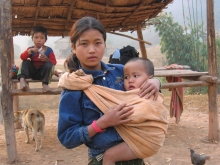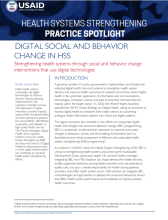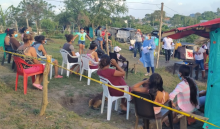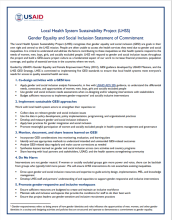Learning and knowledge sharing are fundamental to the LHSS Project. We invite you to search LHSS knowledge products and resources for the latest approaches, insights, and learning in the field of integrated health systems strengthening.

Routine stakeholder engagement is critical to fair and inclusive national priority setting for health, but many countries face challenges in reaching key groups. This blog shares promising practices for bringing in key stakeholders and making sure the loudest voices aren’t the only ones heard.
This brief includes a set of suggested competencies developed in collaboration with a diverse group of stakeholders from around the world who identified them as essential for the health workforce.
This technical guidance document provides a summary of principal findings that highlight those complex factors including a literature review, surveys, resource mapping, case studies including key informant interviews, and the development of a theory of change.
This literature review seeks to identify, analyze, and document successful efforts to integrate Social Determinants of Health into health workforce education, training, and service delivery in low- and middle-income countries.
This case study examines how Côte d’Ivoire’s DREAMS program incorporates Social Determinants of Health elements into HIV service delivery, as well as the related processes and key lessons learned.
This case study describes and analyzes the Eswatini Nursing Council's efforts to strengthen the competence of nursing graduates to address the population’s health needs by introducing entry-to-practice competencies as the basis for a national licensing examination, and for incorporating Social Determinants of Health into these competencies.
This case study describes and analyzes Patan Academy of Health Science’s efforts and contributes to the knowledge base on how to maximize the positive impact of integrating Social Determinants of Health into the education and training of health workers.
The case study in Senegal focused on practical experiences and lessons learned when expanding financial protection to socially excluded and vulnerable groups.
The case study shows the literature and previous work on health equity to identify promising approaches and strategies from Senegal’s experience to ensure more equitable financial protection, particularly for underserved and socially excluded populations.

This brief explores ways in which digital tools and systems can be used successfully and responsibly to advance SBC interventions in support of health system strengthening, and provides recommendations for future programming and areas of research.

By now, much has been written about the egregious global inequities in COVID-19 vaccine distribution. But less has been said about another inequity that holds serious implications for global health: the disparities in genomic sequencing capacities and capabilities worldwide.
This strategy document lays out how the LHSS Project will support country partners in moving towards greater gender sensitivity, responsiveness, and ultimately transformation in their health systems.

It is easy to fall back on the habit of using catchall terms like “vulnerable groups” to refer to many different people, but relying on these terms can have a harmful unintended consequence.

Population movement of this magnitude places huge stress on health systems in receptor countries. How can health care for migrants be financed? How can health system capacity be expanded? And how can health sector policies and national migration policies be harmonized?

Guided by USAID’s Gender Equality and Female Empowerment Policy (2012), GESI guidance developed by USAID Missions, and the LHSS GESI Strategy, LHSS is committed to implementing five GESI standards to ensure that local health systems meet everyone’s needs for access to quality essential health services.
